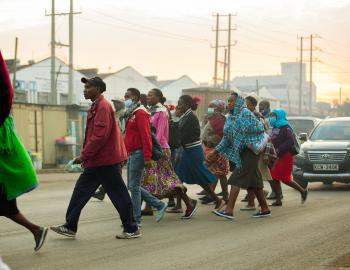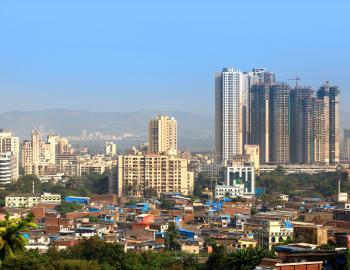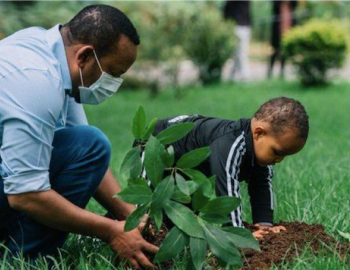REPORT: Targeting Zero Zero
REPORT: Targeting Zero Zero
About 1 billion people currently live in extreme poverty, surviving on less than $1.25 a day (Povcal, 2015). Eradicating extreme poverty should be regarded as the minimum ethical obligation of the global development agenda. The climate crisis, however, threatens our ability to meet this obligation. Climate change will hit the very poorest hardest and threatens to undo many of the hard-fought development gains achieved in recent decades.
Left unabated, climate change will disrupt the global economy to the point that poverty eradication, even if fleetingly achieved by 2030, would be impossible to sustain. The global economy must reach zero net greenhouse gas (GHG) emissions by 2100 under almost all scenarios to limit average global mean temperature increases to the generally agreed 2°C, and thereby avoid catastrophic and irreversible climate change (IPCC, 2014). To achieve this, all countries need to take urgent action to shift towards very low GHG emission economies. Developed countries must make deep cuts against their current emissions, while developing countries will need to ensure that their current investment choices cut their forecasted emissions: global emissions must peak by around 2030.
Even if we achieve this, adaptation will be required to limit the impact on the poor of already locked-in climate change. Contrary to some assertions, the goal of zero net emissions is compatible with eradicating extreme poverty. Early evidence suggests that low-emission economic development, although radically different from our historic experience, is consistent with the combination of moderate, sustained growth and reductions in inequality needed to eradicate poverty. In fact, many low-emission interventions can also be growth enhancing. Even the most pessimistic estimates suggest only a slight drag on growth; a scenario entirely compatible with rapid poverty reduction if inequality is addressed. In contrast, the economic impacts of unchecked climate change will be enormous. A zero net emissions trajectory is critical to meet our obligations to eradicate extreme poverty by and beyond 2030. Achieving this will mean zero global growth in emissions by 2030. To achieve zero zero, development efforts must be more pro-poor and low-emission.
This summary is based on a discussion paper, ‘Targeting Zero Zero’, published by ODI in December 2014 (Granoff et al, 2014). The discussion paper was developed as input into the Development and Climate days at COP 20 in Lima, presented in collaboration by Red Cross/Red Crescent Climate Centre, the International Institute for Environment and Development, the Overseas Development Institute and Climate Development Knowledge Network. The theme was ‘Zero Poverty. Zero emissions. Within a generation’ and the days provided a platform for a diverse set of voices who believe it’s important to unite these agendas and bring zero zero within reach.



